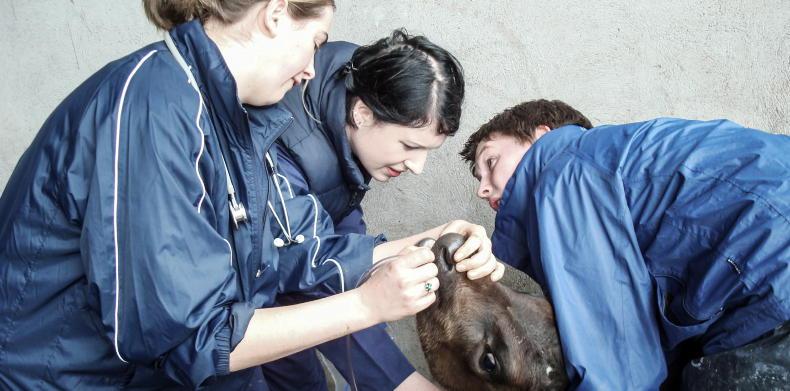With many students registering for its popular Bachelor of Science in Sustainable Agriculture, it is welcome news that Dundalk Institute of Technology (DkIT) announced its plan on Friday to transition to a technological university (TU) by 2023.
The institute’s clear ambition and strategic intent to achieve TU status by 2023 will involve a joint application with another TU.
The statement, which has been ratified by the DkIT governing body, promotes a unified approach in delivering on the strategic goal and becoming a campus of a multi-campus regional TU.
Vision
The statement provides an overarching vision for all stakeholders, as the institute of technology embarks on this new evolutionary period.
It identifies the benefits of becoming part of a cohesive, integrated and unitary multi-campus TU.
Speaking on Friday, DkIT president Michael Mulvey outlined the positive economic, social and cultural impact the transition will have on the greater Dundalk region.
“As an institute, we have a clear vision to become part of a technological university within the lifetime of the Strategic Plan 2020-2022.
"Over recent years, we have consistently espoused the belief that our region would gain significantly from being a TU campus from an economic, social and cultural perspective.
Key shared values
“Our vision statement released today helps articulate what a campus of a multi-campus regional TU will look like for DkIT and it outlines some of the key shared values and attributes we will seek in partnering with a TU,” He said.
Chair of the DkIT governing body Paddy Malone added: “As a governing body, we are committed to fully supporting the institute to achieve its ambition of technological university status – something which we recognise is of fundamental importance to DkIT leveraging the M1 Corridor, Cavan and Monaghan and ensuring it reaches its potential for the benefit of students, staff and the wider community.”
In its statement, the Higher Education Authority commended the contribution DkIT has made to the development of its region and announced its commitment to support the institute’s TU ambitions.
Well on its way in meeting eligibility to become part of a TU, DkIT has already attained two of the three requirements, which include:
30% of all DkIT students now participate in work placement as part of their academic careers. 90.7% of core academic staff have a masters qualification and 46.75% have a PhD or professional qualification.4% of students enrolled in Masters and PhD research programmes (expected to be reached in academic year 2021/2022). Read more
Student blogs: farm trials and pedigree dairy herds
Life after an agricultural degree
With many students registering for its popular Bachelor of Science in Sustainable Agriculture, it is welcome news that Dundalk Institute of Technology (DkIT) announced its plan on Friday to transition to a technological university (TU) by 2023.
The institute’s clear ambition and strategic intent to achieve TU status by 2023 will involve a joint application with another TU.
The statement, which has been ratified by the DkIT governing body, promotes a unified approach in delivering on the strategic goal and becoming a campus of a multi-campus regional TU.
Vision
The statement provides an overarching vision for all stakeholders, as the institute of technology embarks on this new evolutionary period.
It identifies the benefits of becoming part of a cohesive, integrated and unitary multi-campus TU.
Speaking on Friday, DkIT president Michael Mulvey outlined the positive economic, social and cultural impact the transition will have on the greater Dundalk region.
“As an institute, we have a clear vision to become part of a technological university within the lifetime of the Strategic Plan 2020-2022.
"Over recent years, we have consistently espoused the belief that our region would gain significantly from being a TU campus from an economic, social and cultural perspective.
Key shared values
“Our vision statement released today helps articulate what a campus of a multi-campus regional TU will look like for DkIT and it outlines some of the key shared values and attributes we will seek in partnering with a TU,” He said.
Chair of the DkIT governing body Paddy Malone added: “As a governing body, we are committed to fully supporting the institute to achieve its ambition of technological university status – something which we recognise is of fundamental importance to DkIT leveraging the M1 Corridor, Cavan and Monaghan and ensuring it reaches its potential for the benefit of students, staff and the wider community.”
In its statement, the Higher Education Authority commended the contribution DkIT has made to the development of its region and announced its commitment to support the institute’s TU ambitions.
Well on its way in meeting eligibility to become part of a TU, DkIT has already attained two of the three requirements, which include:
30% of all DkIT students now participate in work placement as part of their academic careers. 90.7% of core academic staff have a masters qualification and 46.75% have a PhD or professional qualification.4% of students enrolled in Masters and PhD research programmes (expected to be reached in academic year 2021/2022). Read more
Student blogs: farm trials and pedigree dairy herds
Life after an agricultural degree






 This is a subscriber-only article
This is a subscriber-only article










SHARING OPTIONS: